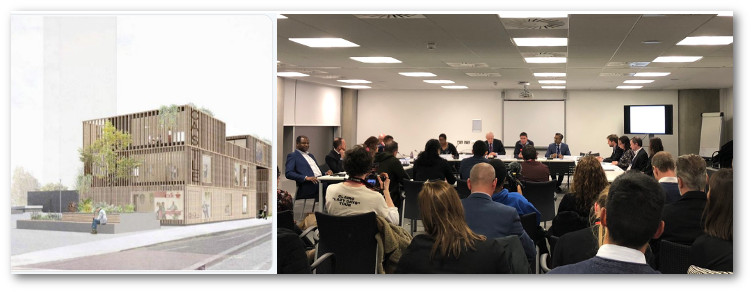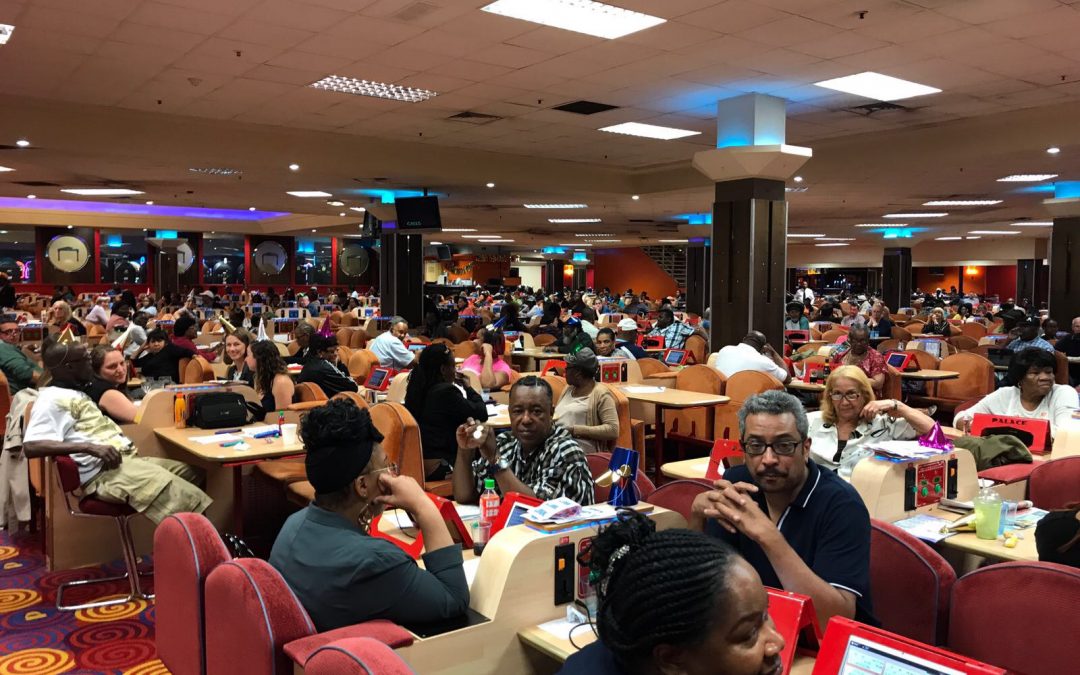
Southwark Council has posted a lengthy statement in defence of its treatment of the shopping centre traders, as around 40 face the loss of their livelihood when the centre closes on 24 September, according to research by local charity Latin Elephant.

The updated statement tries to answer the fierce criticism of Southwark and developer Delancey from the traders and their supporters, as voiced on the BBC Radio London's Drive time with Eddie Nestor programme and detailed in Latin Elephant's twitter feed.
Southwark's statement says that 45 traders have been relocated, with 33 'remaining'. Thirty-one of the 'remaining' unallocated traders, with nowhere to go, have received £3000 each from the Business Transition Grant. They will receive a second payment of an unspecified amount 'near the closure of the shopping centre' ; given the number of traders and the total size of the Business Transition Grant fund (£200k) this is likely to be about another £3000. Southwark also say that unallocated traders 'are able to claim from the relocation fund' - a consolation, no doubt, but of limited use to them if they have nowhere to relocate to.
Other than this the statement details various generic 'business support' measures, such as access to websites and databases and advice from 'independent business and relocation advisor' Tree Shepherd (remote access only).
The inadequacy of these 'business support' measures barely needs stating; if they were of any use nearly half of the remaining traders would not be without new premises. Our webpage E&C Traders with nowhere to go has the testimonies of six unallocated traders, who have been at the centre for between eight and 20 years each (a total of nearly a hundred years between them). They are all experienced traders who would otherwise be continuing in their trade, but for the regeneration. They deserve something more than ineffectual promises of help, with a derisory £6000 to see them on their way, come 24 September.
The Relocation Fund
While Southwark says 'the Relocation Fund (£647,835) has been available for eligible traders ...from February 2020' traders have not in fact been getting the money they need because Southwark, Delancey and Tree Shepherd have shown no urgency in resolving issues around the costs of fit-outs and lease and rent arrangements. Southwark says these are being 'currently' resolved, when there is less than a month to go before closure. There is also no on-the-ground practical help, of the kind Tree Shepherd should be providing. This can be excused to an extent by the Covid crisis, but that does not help the traders.
Each relocation payment will be based on the size of the new premise, but averages out at £14,396 per trader - less than a tenth of Tree Shepherd's fee of £192,900 for administering the whole exercise [^1]. The payments are only designed to meet actual relocation costs - they do not include any compensation for loss of business, premises, disturbance etc.
The total amount in the Relocation Fund is derisory in comparison to the Delancey's anticipated profit of £148.4m [^2]. Southwark attempts to address this, saying 'Delancey have long agreed to supplement the relocation fund on a case by case basis'. This turns out to be Delancey's hardship fund, awarded entirely at Delancey's discretion and only after traders have first considered raising loans from family, friends or elsewhere. An alternative method would be to simply assess the actual costs of relocating and paying anything above the paltry amount currently on offer. Delancey has also helpfully advised that traders could become Uber drivers.
Southwark's statement - the highlights
Several other parts of Southwark's statement stand out, one for being particularly inane;
'For many smaller traders this is an opportunity to grow and develop their business.'
There has never been true at any point since the redevelopment of the shopping centre was first proposed three years ago and it certainly isn't true now.
Southwark also claim that 'The council is committed to enabling the largest possible number of existing businesses to remain in the area' .
If Southwark was genuinely committed to keeping the largest number of businesses in the area it would not have approved a planning application that did not guarantee this. Southwark's planning department was happy to recommend, in 2017, a scheme that did not then have one of the main relocation sites (Castle Square). It continued to recommend a scheme without a fully realised relocation strategy, which the planning committee duly approved. Delancey designed the redevelopment to exclude current independent traders and Southwark went along with them [^3].
Southwark's statement further says, 'Unfortunately there were always going to be traders that were not able to be offered a unit in the relocation spaces listed owing to space restrictions.'
This is not what Southwark said back in December 2018, when the question was raised at the planning meeting for the temporary relocation facility at Castle Square. When asked directly by councillors 'given all of the different site...does that cover...enough sites for all of the current number of traders.....How many short would we be roughly?' council officers replied '...across the piste there should be sufficient'.

Southwark ignored the true state of affairs, revealed by Latin Elephant's planning objection in July 2018, which said 'Only 2,050sqm of affordable retail space would be available for immediate relocation, and 4,005sqm is needed' and approved the scheme anyway [^4]. Southwark was also well aware that 'Market stall operators may experience temporary or permanent closure or disruption to business operations, financial or other barriers to re-opening at the new development or in the wider area' , but this did not lead them to seek improvements in the scheme or to insist on a fully realised relocation strategy, agreed with traders, before giving planning approval [^5].
Gone - but not forgotten
While Southwark has been forced to turn its attention to the remaining traders, it would be easy to forget the traders, services and leisure amenities that have already been lost to the regeneration. Latin Elephant/petit Elephant research shows that there were around 130 traders in January 2018; now we have about ninety left, with only about half reallocated. Forty or so more have already gone, and have fallen out of Southwark's reckoning, forced to leave, as footfall and business declined, wearied beyond hope by the whole 'regeneration' process.

Amongst these are the London Palace bingo hall, one of Britain's largest, with its large customer base in the BAME community; the Palace Superbowl bowling alley, much loved by local students; the Coronet live music night-club, an entertainment venue since 1872; the Charlie Chaplin pub, the many small office businesses in Hannibal House, just above the centre, which also housed a college, charities and voluntary organisations and the United Voices of the World trade union. In Southwark's happy reality they no longer exist and so their loss does not count.
The true story about the shopping centre redevelopment is the same as it was for the Heygate estate regeneration - Southwark Council has thrown its lot in with the developers, Lendlease and Delancey, and what happens to the people who actually live and work at the Elephant has been an afterthought.
Footnotes:
[^1]: Elephant and Castle Shopping Centre s106 Agreement pg 113
[^2]: Elephant and Castle Shopping Centre s106 Agreement Appendix 10 pg 266
[^3]: Delancey's view of the independent traders was made clear in their Planning Statement, which says ‘…some existing retailers in the area are benefitting from disproportionately low levels of rent for such a central London location and it may not be financially viable for them to survive in the wider area over the longer term’ para 8.7.
[^4]: Officer's Report Elephant and Castel Shopping Centre 3 July 2018 para 851
[^5]: Officer's Report Elephant and Castel Shopping Centre 3 July 2018 para 169